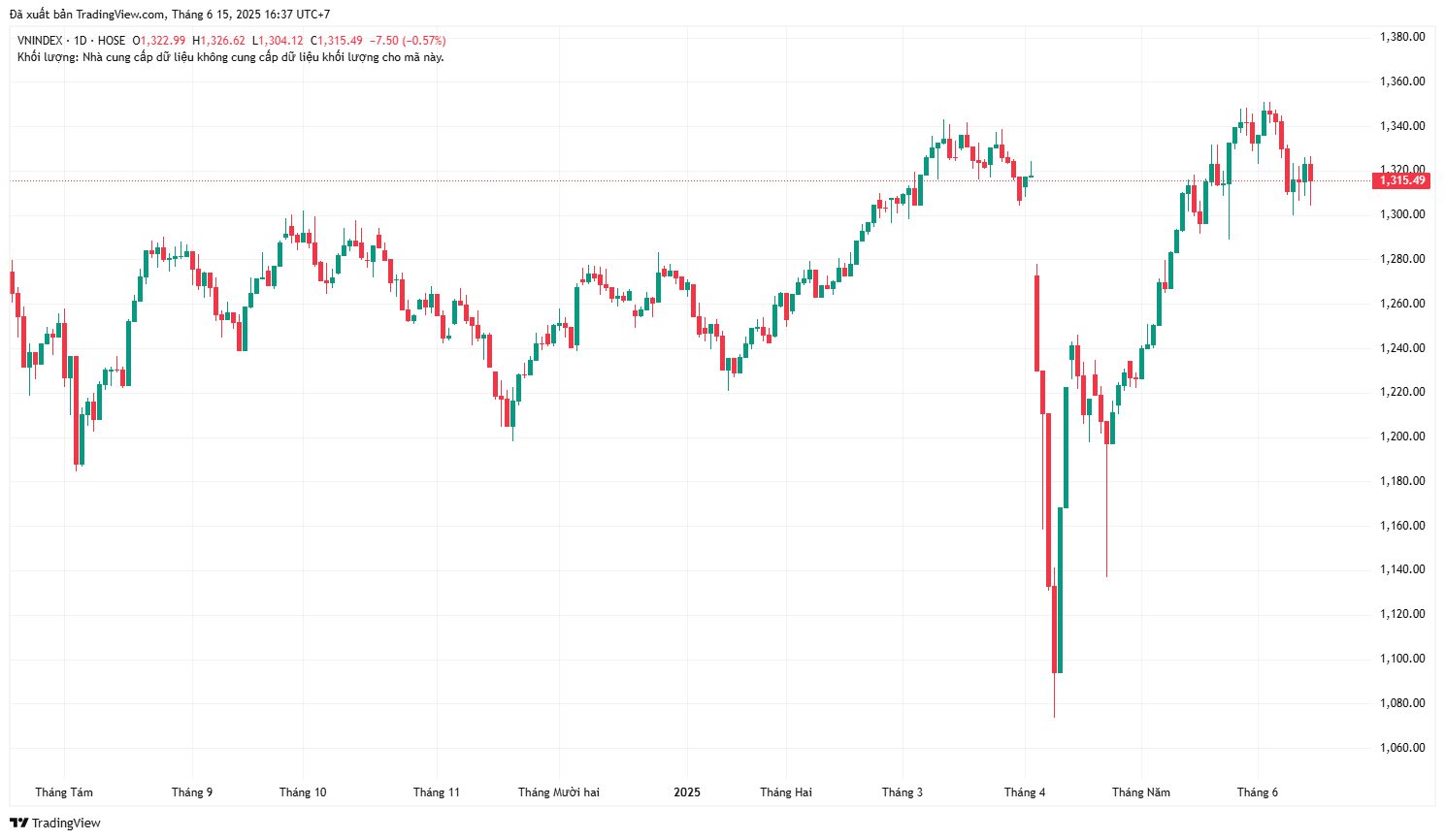What scenario for the Vietnamese stock market?
It is advised that investors be ready for two potential outcomes for the Vietnamese stock market following the conclusion of the trade talks between the US and Vietnam.

Information has recently had a significant impact on the Vietnamese stock market. But when there is little information left to sustain the stock market, this appears to be reaching its limit.
Supporting factors are drying up
The VN-Index is presently trading at 1,315 points, which is the same level as before US President Donald Trump announced the tariff policy. With the exception of a few equities with negative information, the majority of stocks have returned to their previous level. As for the stocks that are already on the rise, many of them—including VIC, VHM, and VRE—have even seen quite significant increases, as have other stocks like HAH, GEX, and VSC.
However, this upswing has been greatly impacted by the rise of certain large-cap stocks, such as VIC, VHM, TCB, etc.; thus, merely observing this tendency does not imply that the stock market has been performing well. According to some estimations, the three Vingroup stocks alone were responsible for over 100 points of the most recent VN-Index rise.
Another argument in recent times is that information frequently has a stronger impact on stock prices than on company performance. A company's stock will instantly rise if there is good news about the industry or business and fall if there is bad news. For instance, when news broke that the State Bank was looking into PNJ's gold dealing operations, the company's shares were instantly liquidated. Alternatively, news of the TCBS IPO caused a strong surge in TCB shares.
Stock analyst Nguyen Huu Binh stated that this game appears to be nearing its end because there isn't much more data to back it up. Conversely, the 90-day period for the temporary suspension of US tariffs is rapidly approaching, yet there has been no formal announcement about the trade talks. As they await the details, investors are beginning to take a backseat.
Note to investors
Binh believes investors should outline two possible outcomes for the trade negotiations between the United States and its trading partners: one is a failure, and the other is a triumph. There will probably be some sideways movement in the first scenario because the stock market has risen significantly, as mentioned above. Stocks linked to the US tariffs, including those in the logistics, seaport, and industrial park real estate sectors, will undoubtedly see downward pressure.

Considering the US Secretary of Commerce's stance on Vietnamese exports to the US, the second scenario is consistent with expectations, indicating that Vietnam will find it extremely challenging to receive lower tariffs from the US. The stock market will probably continue to correct in this situation, albeit more subtly. Investors will generally assume that the Vietnamese economy will be impacted in the long run, even though there might not be a sharp decline in many companies.
Another aspect is that the Vietnamese economy is being significantly impacted by a number of urgent and unexpected events that are currently taking place. For instance, the government is aggressively combating tax evasion, bogus goods, and counterfeit items. There will be firms that suffer from unhealthy practices, but there will also be genuine businesses that gain from this action.
Investors should keep an eye on the manufacturing and business conditions of companies throughout this time. According to recent data, stock values may grow or fall, but over time, this must be mirrored in the operations of businesses, Binh stated.
Resolutions No. 57, 59, 66, and 68/NQ-TW of the Politburo are the "Four Pillars" to help Vietnam become self-reliant and rise in the coming time. This requires investors to have a truly in-depth analysis of the impacts on listed companies to find opportunities in the future. This is a long-term investment opportunity that investors should not miss at this time.








